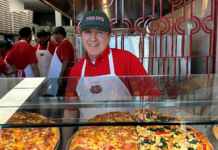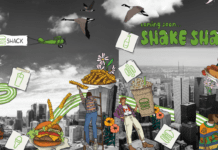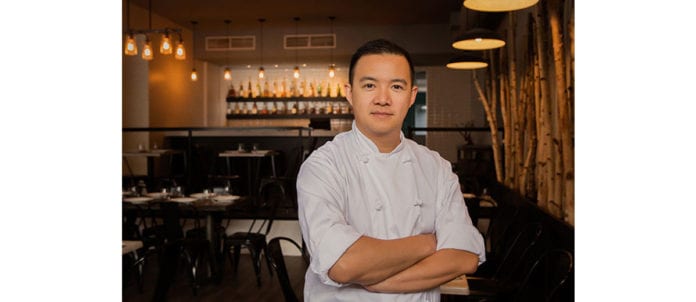Nestled within the small town of Stouffville, Ont., The Smokery Kitchen & Bar has been serving up big flavours centred around a seasonal menu of homemade barbecue made with fresh local ingredients for the last six years.
But, when COVID-19 hit last March, chef/owner Christopher Waye had to re-invent his restaurant model to find new ways to serve its customers.
“I remember having a conversation with my staff in January [2020] and we had an inkling [COVID-19-related closures] were coming our way,” says Waye. “And it wasn’t a matter of if — it was a matter of when, [as] there was a lot of uncertainty.”
When The Smokery was forced to close its dining room last March, Waye scrambled to find a way to stay true to his food philosophy — a focus on Ontario farmers — while pivoting his business model.
“When the pandemic first started, my first thought, in terms of the business, was to get back to basics,” he says. “When this hit, it really drove home [the question of] what are we really about? What is really important to us? What are we known for?’ And that’s when we started up with family meals, which was trying to accomplish a goal of feeding people and giving them good cuisine that is reasonably priced and made in house.”
When COVID-19 hit the industry, The Smokery didn’t have its website up and running, so Waye turned to social media to get the message out to his customers. Weekly offerings were posted on Facebook and customers were invited to either call in their orders or use the online order form. There was a limited pick-up schedule of 5 p.m. to 7 p.m, Thursday to Saturday to combat the staffing
challenge that comes with operating during a pandemic.
“It was mainly takeout and delivery was not really an option at the time,” says Waye. “So, once we made that decision, we had to look a little bit deeper and say, ‘What will incentivize our customers to take the extra step to come out and to support us?’ And that meant having a really aggressive price point and getting back to basics.”
He also chose not to use third-party food-delivery apps, explaining he preferred to keep his takeout business local to the tight-knit Stouffville community. “Thankfully, we’re a small community and that small community is very supportive and really has its ear to the ground for what’s happening locally,” he said.
A year later, Waye regards the changes he’s made to his restaurant during the pandemic as something to remember. And, with a fully functional website and menu properly established, “as the months went on and as more support poured in from new or frequent customers,” he wants to continue doing more.
“We started offering a marketplace and pantry [and] there’s no reason why we shouldn’t expand it as we move forward. And that’s the idea — take the lessons learned over the last [year] and apply them to further the business,” he says. “We have up to 60 items now and we’re looking to add more, to offer a different side of us — bottling our sauces, bottling our pickles, offering brisket by the pound, pulled pork by the pound. We’ve recently launched the smoked salmon, which is house made and locally smoked. So, we’re looking to add more products and expand our offering.”
As the industry moves into the new normal, Waye looks to keep the well-being of both the community and the restaurant on his mind with each decision.
“It’s very challenging to do because, as a restaurant, you want to be open and serve the community. So, to say no is kind of the antithesis of what a restaurant should be — a welcoming space where people congregate and have great food. You want to be one of those pillars of the community.” – BY NICHOLAS RAHMON

















